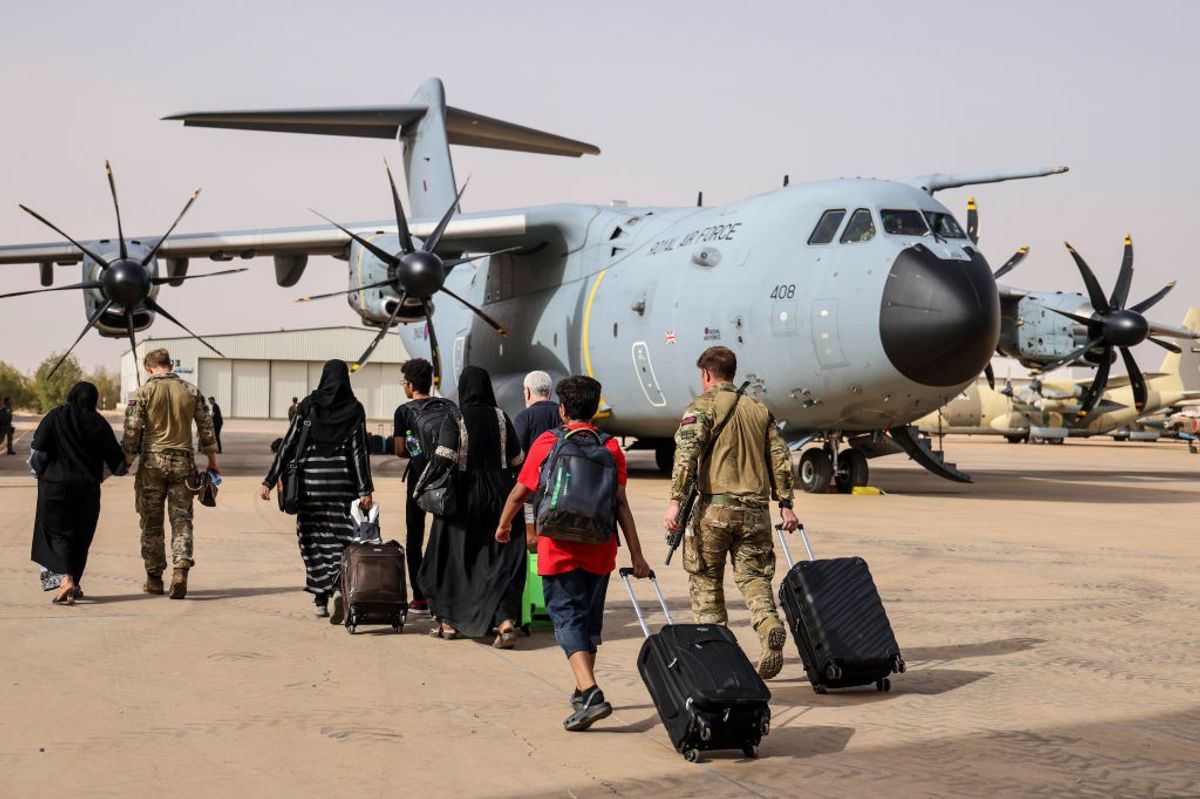The European Union (EU) is entering into partnership deals, or “compacts,” with at least five African countries to try to stem the flow of migrants from Africa to Europe. The Cipher Brief’s Kaitlin Lavinder asked Kate Hooper, an associate policy analyst with the Migration Policy Institute’s International Program, what these deals entail, if they’ll work to reduce migration, and what this all means for European and U.S. security.
The Cipher Brief: Why did the EU decide to enter into migration partnership deals with five African countries – Ethiopia, Mali, Niger, Nigeria, and Senegal?
Kate Hooper: The EU has been pursuing closer partnerships with a number of countries in Africa, the Middle East, and Asia to try to better manage migration flows to Europe. This includes countries that are major sending countries, such as Nigeria, which has accounted for 21 percent of arrivals in Italy in 2016, countries that host large numbers of refugees, for example, Jordan and Lebanon, which together host 1.7 million Syrian refugees, and countries along key migration routes to Europe, such as Niger and Ethiopia.
These partnerships merge security and migration management objectives, such as building countries’ border enforcement capacity and facilitating returns of unauthorized migrants, with broader economic development designed to tackle the factors driving people to move in the first place. The partnership deals – or “migration compacts” – will coordinate and build on the different activities by EU agencies and member states on migration and in related areas like security, development, and trade.
TCB: What do these deals entail, and are they working? If so, will we see more of these deals in the future?
KH: The EU has concluded migration compacts with Jordan and Lebanon, and will likely adopt these in the coming weeks. The compact with Jordan is slated to include support for special economic zones to create employment for refugees and host communities, and expanded education opportunities for Syrian refugee children. The compact with Lebanon will include measures to improve processes to register and issue residence permits to Syrian refugees.
Negotiations on forging migration compacts with Ethiopia, Mali, Niger, Nigeria, and Senegal are ongoing, but the EU hopes to conclude these deals in 2017. Cooperation on addressing smuggling and trafficking activities and border enforcement will likely be a priority for the compacts with Niger and Mali; while facilitating returns and investments to expand livelihood opportunities probably will be a priority for Ethiopia, Nigeria, and Senegal, which are key countries of origin and transit for migrants and refugees.
TCB: Nigeria and the EU have begun readmission negotiations. Why is this significant? That is, once a deal is reached, will this greatly reduce the number of Nigerian migrants in Europe?
KH: Currently, relatively few people who are issued removal orders actually return to their country of origin: about one in three in 2015 across the EU, though the exact share varies by country. The goal of these readmissions agreements is to improve removal rates by setting out clear return procedures. The incentives for partner countries to participate in these agreements can include financial assistance, visa liberalization, or cooperation in other areas, such as trade. But implementation is often a challenge: both in terms of broad political will to implement these agreements and delays or difficulties in returns procedures, such as in the issuance of identification documents to returnees.
While there is an array of readmission agreements at both the EU and the national level, there are limited evaluations of how effective these agreements have been in returning people or deterring further arrivals. This means that even as the EU or its member states pursue readmission agreements, we don’t really know how well they work, or whether they’re the best policy tool for achieving objectives like reducing the number of people arriving in Europe.
Over the past few years, Nigeria has signed readmissions agreements with a number of EU member states, including Spain, Italy, Austria, and the United Kingdom. While the EU’s agreement would supersede these arrangements, and at this stage, we don’t know what the exact provisions of such an agreement would be, the data suggest these existing arrangements haven’t been very effective. Return rates from these countries to Nigeria vary quite significantly. While the United Kingdom returned a significant proportion of those issued orders to leave between 2008 and 2015, Spain returned just one in five, while Italy returned fewer than one in ten found not to have a valid claim to remain in Europe. Meanwhile, unauthorized migration from Nigeria to Europe continues, suggesting these arrangements aren’t a very effective deterrent.
TCB: Can you expand on how some EU member states are working bilaterally with African countries?
KH: A number of EU member states have longstanding formal and informal arrangements with African countries on migration management. Examples include readmission agreements, such as the ones with Nigeria; police cooperation arrangements, where member states have provided financial and logistical support to train police and border enforcement agencies; labor migration agreements, which offer migration opportunities to the partner country’s nationals in certain sectors like agriculture; and temporary exchange programs for students or professionals in certain sectors.
TCB: What do Africans think of these EU Migrant Partnerships?
KH: At the Valletta Summit on Migration in November 2015, the African Union reiterated the importance of addressing the structural factors that are driving people to move within Africa and to Europe. One of the key summit outcomes was the Emergency Trust Fund for Africa, which will provide €1.8 billion in funding for projects to address drivers of migration, like youth unemployment or a lack of education opportunities. But a number of African leaders have said this simply isn’t enough money to deal with the scale of the problems facing some of these countries – especially in light of the March 2016 EU-Turkey deal, where the EU pledged up to €6 billion in funding for refugees in Turkey in exchange for border enforcement and returns of new arrivals. There is a sense the EU-Turkey deal will cause other countries to demand significantly more in any future cooperation agreements. Niger, for example, told European ministers in May that it would need €1 billion to combat illegal immigration through its territory.
TCB: Will the EU’s current migration policy in Africa heighten European security? And is there any connection – good or bad – to U.S. security?
KH: It is a bit early to predict whether these partnerships will have much effect on stemming migration flows to Europe. Without reducing the demand for smuggling services, enforcement activities will likely raise smuggling prices and push these operations further into the hands of organized crime. Efforts to change the “migration calculus” – that is, to encourage people to remain at home and not undertake these dangerous journeys – will require massive and sustained investments that likely will not yield quick results. And it is worth keeping in mind that it is not society’s poorest who migrate. Research suggests that increasing annual incomes in poor countries can in fact lead to higher – not lower – levels of migration, as more people can afford the costs involved.













